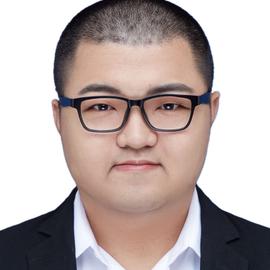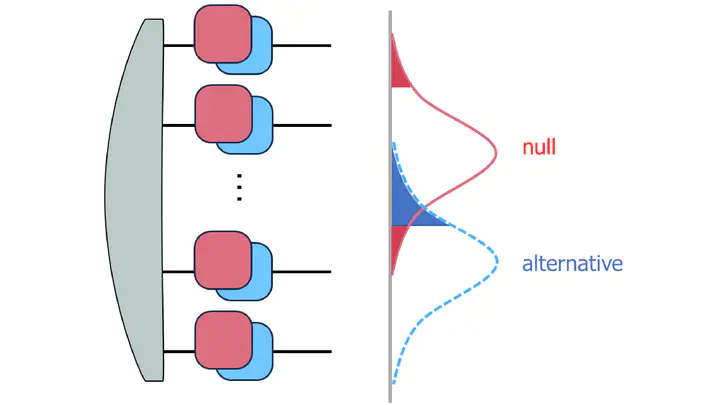Abstract
Symmetry plays a crucial role in quantum physics, dictating the behavior and dynamics of physical systems. In this paper, We develop a hypothesis-testing framework for quantum dynamics symmetry using a limited number of queries to the unknown unitary operation and establish the quantum max-relative entropy lower bound for the type-II error. We construct optimal ancilla-free protocols that achieve optimal type-II error probability for testing time-reversal symmetry (T-symmetry) and diagonal symmetry (Z-symmetry) with limited queries. Contrasting with the advantages of indefinite causal order strategies in various quantum information processing tasks, we show that parallel, adaptive, and indefinite causal order strategies have equal power for our tasks. We establish optimal protocols for T-symmetry testing and Z-symmetry testing for 6 and 5 queries, respectively, from which we infer that the type-II error exhibits a decay rate of $\mathcal{O}(m^{-2})$ with respect to the number of queries $m$. This represents a significant improvement over the basic repetition protocols without using global entanglement, where the error decays at a slower rate of $\mathcal{O}(m^{-1})$.
Publication
arXiv.2411.14292

Research Associate
I obtained my BS in Mathematics and Applied Mathematics from University of Science and Technology of China. I obtained my PhD degree in Applied Mathematics from University of Chinese Academy of Sciences under the supervision of Prof. Xiao-Shan Gao. My research interests include quantum computing, symbolic computation and cryptanalysis.

PhD Student (2023)
I obtained my BS and MS degrees in computer science from the University of Melbourne. My research interests include distributed quantum computing, quantum entanglement and quantum machine learning.

PhD Student (2024)
I obtained my BS in Electronic Information Science and Technology from Chongqing University. I obtained my MS degree in Electrical Engineering from University of Southern California. My research interests include quantum information theory and quantum error correction.


Associate Professor
Prof. Xin Wang founded the QuAIR lab at HKUST(Guangzhou) in June 2023. His research primarily focuses on better understanding the limits of information processing with quantum systems and the power of quantum artificial intelligence. Prior to establishing the QuAIR lab, Prof. Wang was a Staff Researcher at the Institute for Quantum Computing at Baidu Research, where he concentrated on quantum computing research and the development of the Baidu Quantum Platform. Notably, he spearheaded the development of Paddle Quantum, a Python library designed for quantum machine learning. From 2018 to 2019, Prof. Wang held the position of Hartree Postdoctoral Fellow at the Joint Center for Quantum Information and Computer Science (QuICS) at the University of Maryland, College Park. He earned his doctorate in quantum information from the University of Technology Sydney in 2018, under the guidance of Prof. Runyao Duan and Prof. Andreas Winter. In 2014, Prof. Wang obtained his B.S. in mathematics (with Wu Yuzhang Honor) from Sichuan University.
 The protocol that achieves the optimal type-II error probability
The protocol that achieves the optimal type-II error probability